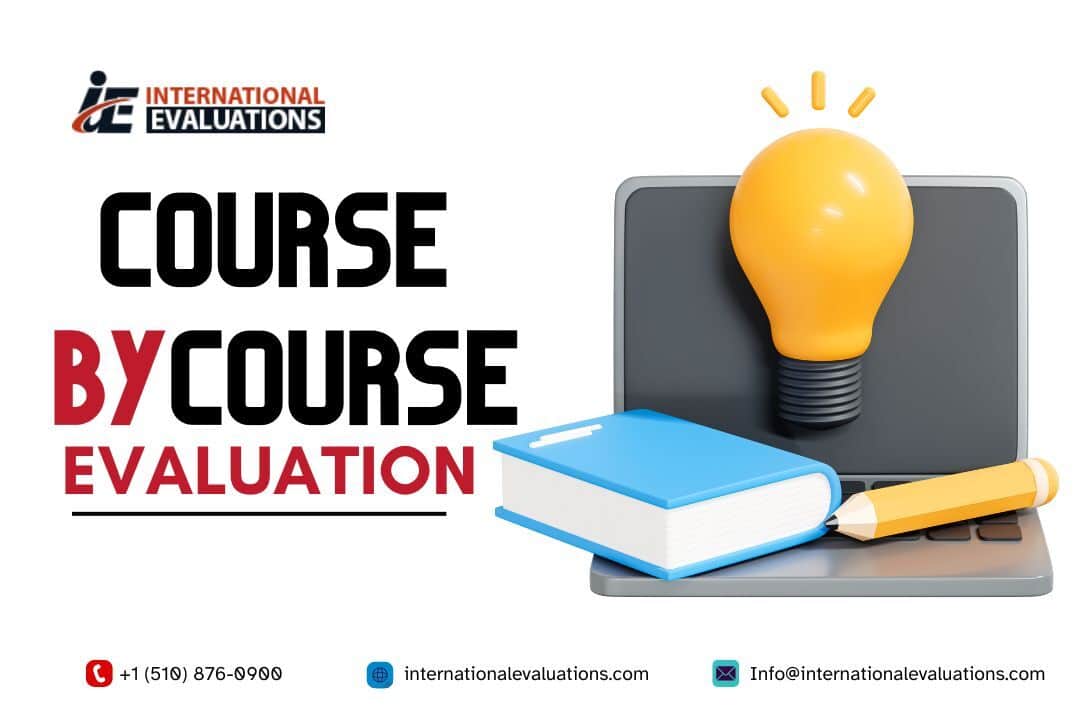Introduction
In a progressively globalized world, the need to assess work experience properly has actually never been more vital. Individuals wanting to advance their professions or relocate typically find themselves browsing a maze of academic and professional qualifications from numerous countries. For companies and educational institutions alike, comprehending these qualifications is pivotal in guaranteeing that they pick the best candidates.
This short article dives deep into Unlocking Potential: Comprehensive Work Experience Assessment Techniques, exploring various approaches, consisting of academic credential evaluation, international credential examination services, course-by-course credential evaluation, and the importance of the expert opinion letter in making informed choices about prospective employees or students.
Unlocking Potential: Comprehensive Work Experience Assessment Techniques
Evaluating work experience acts as a bridge in between individual prospective and chance. Yet, how do we open this possible effectively? The response depends on a multi-faceted technique that includes different evaluation methods tailored to private needs and contexts.
Understanding Work Experience Evaluation
Work experience evaluation examines an individual's professional background, skills, and competencies relative to job requirements or academic standards. This process can substantially vary based on region, market, and specific roles.
The Value of Precise Evaluation
Why is accurate work experience assessment important? Errors can lead to bad hiring choices, mismatched instructional placements, or unsatisfied profession goals. It's vital for companies and institutions to ensure they use precise techniques when evaluating qualifications.
Key Elements in Evaluating Work Experience
Professional Background Check
An extensive review of previous work history is crucial. This includes confirming task titles, periods of work, duties held, and achievements.
Skills Assessment
Understanding the skills obtained during previous functions helps determine viability for future positions.
Industry Relevance
Examining whether past experiences align with present industry standards is vital for a meaningful assessment.
Academic Credential Evaluation
This includes examining any formal education got alongside expert experience.
Types of Credential Evaluations
International Credential Assessment Services
When prospects have certifications from foreign institutions, global credential assessment services come into play.

What Are International Credential Examination Services?
These services assess foreign academic credentials versus regional standards. They supply insights into how degrees equate within the domestic education system or labor market.
Why Usage These Services?
- To comprehend equivalency in terms of education level To help with smoother migration processes To improve employability by validating foreign qualifications
Course-by-Course Credential Evaluation
What Is Course-by-Course Credential Evaluation?
This type assesses each course taken throughout a candidate's education journey rather than just supplying an overall degree equivalency.
Benefits
- Detailed insights into particular courses undertaken Enables institutions to make informed choices relating to credit transfers Supports applicants looking for further education by highlighting strengths and weak points
Crafting Reliable Professional Viewpoint Letters
A specialist opinion letter functions as a vital file in many evaluation processes.

What Is an Expert Viewpoint Letter?
This letter is composed by experts who have competence in evaluating academic credentials or work experience relative to market standards.
Why Are They Important?
Expert viewpoint letters serve numerous functions:
- Provide reliable assessments Validate claims made by candidates about their experiences Enhance trustworthiness throughout application procedures
Steps for Performing a Comprehensive Work Experience Evaluation
Gather Documentation
Gather all pertinent documents including CVs, recommendation letters, and performance reviews.
Conduct Interviews
Direct discussions provide much deeper insights into prospects' experiences and soft skills.
Use Standardized Tools
Use frameworks or tools created for assessing abilities and experiences systematically.
Comparison Versus Standards
Align findings with industry standards to ascertain importance and value.
Compile Findings into Reports
Present results clearly for stakeholders' review-- transparency is key!
Challenges in Work Experience Evaluation
Recognizing Pitfalls
Despite best shots, obstacles are plentiful in examining work experience precisely:
Cultural Distinctions Variability in Task Titles Lack of Standardization Throughout AreasHow to Overcome These Challenges?
- Train evaluators on cultural competency. Utilize databases that clarify job title equivalencies across industries.
FAQs
1. What does scholastic credential evaluation entail?
Academic credential assessment usually involves examining degrees acquired from numerous organizations worldwide to identify their equivalency in another country's education system.
2. Why are international credential assessment services necessary?
They help verify foreign credentials so that people can acquire employment or admission into curricula without confusion over their qualifications' legitimacy.
3. What identifies course-by-course credential examination from routine evaluations?
Course-by-course examinations examine each individual course taken during one's education instead of simply examining the degree as a whole.
4. How does a skilled opinion letter support my application?
An expert opinion letter supplies reliable backing for your claims regarding your certifications or experiences and can significantly boost your application's strength.
5. What are common difficulties dealt with throughout work experience evaluations?
Common challenges consist of cultural distinctions affecting analyses of roles/skills, variability in job titles across regions, and absence of standardization leading to confusion over equivalencies.
6. How can I prepare for a work experience evaluation?
Gather thorough documents like your CV/resume, referrals from previous employers, efficiency evaluations if readily available, and be ready to discuss your experiences candidly throughout interviews.
Conclusion
As we've checked out throughout this article on " Unlocking Possible: Comprehensive Work Experience Examination Techniques," it's clear https://emilianopjwc071.lowescouponn.com/your-guide-to-academic-credential-evaluation-for-international-trainees that reliable evaluations depend upon nuanced understanding and careful execution of a number of methods-- ranging from scholastic credential examinations to skilled viewpoint letters that provide credence to individual narratives.

Employers need to welcome these extensive methods not just as bureaucratic necessities but as chances to empower people through reasonable assessments-- ultimately opening the huge potentials concealed within diverse backgrounds worldwide! By investing time in refining these strategies today, organizations can build more powerful teams tomorrow while individuals can browse their career paths with clarity and confidence.